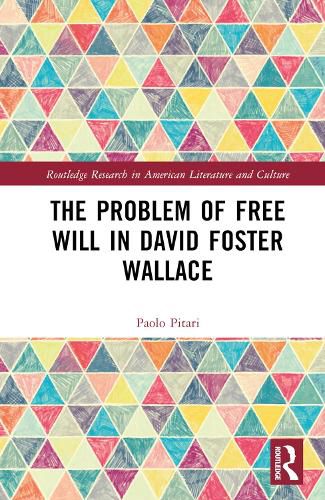Readings Newsletter
Become a Readings Member to make your shopping experience even easier.
Sign in or sign up for free!
You’re not far away from qualifying for FREE standard shipping within Australia
You’ve qualified for FREE standard shipping within Australia
The cart is loading…






This book argues that David Foster Wallace failed to provide a response to the existential predicament of our time. Wallace wanted to confront despair through art, but he remained trapped, and his entrapment originates in the "existentialist contradiction": the impossibility of affirming the meaningfulness of life and an ethics of compassion while believing in free will.
To substantiate this thesis, the analysis reads Wallace in conversation with the existentialist philosophers and writers who influenced him: Soren Kierkegaard, Fyodor Dostoevsky, Martin Heidegger, Jean-Paul Sartre, Albert Camus, and Ludwig Wittgenstein. It compares his non-fiction with the sociologies of Christopher Lasch, Zygmunt Bauman, Ulrich Beck and Elisabeth Beck-Gernsheim, and Anthony Giddens. And it finds inspiration in Giacomo Leopardi, Friedrich Nietzsche, and Emanuele Severino to conclude that the philosophy which pervades Wallace's works entails despair and represents the essence of our civilization's interpretation of the world.
$9.00 standard shipping within Australia
FREE standard shipping within Australia for orders over $100.00
Express & International shipping calculated at checkout
This book argues that David Foster Wallace failed to provide a response to the existential predicament of our time. Wallace wanted to confront despair through art, but he remained trapped, and his entrapment originates in the "existentialist contradiction": the impossibility of affirming the meaningfulness of life and an ethics of compassion while believing in free will.
To substantiate this thesis, the analysis reads Wallace in conversation with the existentialist philosophers and writers who influenced him: Soren Kierkegaard, Fyodor Dostoevsky, Martin Heidegger, Jean-Paul Sartre, Albert Camus, and Ludwig Wittgenstein. It compares his non-fiction with the sociologies of Christopher Lasch, Zygmunt Bauman, Ulrich Beck and Elisabeth Beck-Gernsheim, and Anthony Giddens. And it finds inspiration in Giacomo Leopardi, Friedrich Nietzsche, and Emanuele Severino to conclude that the philosophy which pervades Wallace's works entails despair and represents the essence of our civilization's interpretation of the world.